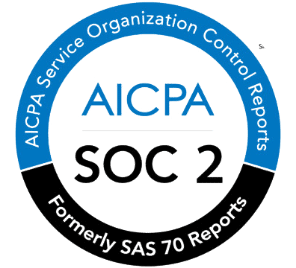As a financial planner, adding estate planning software to your tech stack can be a game changer. It can streamline your workflows, enhance client satisfaction, and ultimately, boost your firm’s efficiency.
But with so many options out there, how do you choose the best one?
- Estate planning software is an important part of a financial planner’s tech stack, as it allows a client to think past today and well into their future needs.
- The best estate planning software will be intuitive and easy to navigate, with a clean interface and responsive performance.
- Asking yourself some key questions will help you find the best software to align with your overall financial planning services and give your clients the satisfaction and peace of mind they’re looking for.
- Question #1: What are the Main Features I Should be Looking for in Estate Planning Software?
- Question #2: Is the Estate Planning Software User-Friendly?
- Question #3: How Secure Is the Software?
- Question #4: Does the Software Integrate with Existing Tools?
- Question #5: What Support and Training Are Available?
- Question #6: What Are the Software’s Reviews and Overall Reputation?
- Holistiplan: The Answer to Your Estate Planning Software Questions
Estate planning has become one of the most popular services that financial planners offer to their clients.
Clients are increasingly looking for financial advisors who can provide a holistic view of their financial situation, integrating estate planning with other key areas such as investment management, retirement planning, and tax strategies.
If you are a financial planner looking to add estate planning to your client portfolio, then here are six crucial questions you will want to ask to help you find the most efficient, cost-effective, and easy-to-use estate planning software for your financial firm and clients.
Question #1: What are the Main Features I Should be Looking for in Estate Planning Software?
Why This Matters: The primary purpose of estate planning software is to simplify and automate the estate planning process for you and your clients.
However, it’s not uncommon for the features offered to vary among the different software programs.
What You Should Look For: As a financial planner, there will be core features that you will want to make sure your estate planning software has in order for it to be effective and valuable for your practice.

These features should include:

Document Organization:
Make sure the software allows you to easily organize and manage all estate planning documents. While many of your clients may use an attorney or online will makers for their legal document creation, you will want to have estate software that allows for secure storage and easy access to all client documents.

Estate Reports:
The software you choose should have a way to provide you and your clients with insights on wills, living trusts, beneficiaries, powers of attorney, and other estate planning documents.

Beneficiary Review:
Ensure beneficiaries are up-to-date with a summary review and last-reviewed date markers for all transfer-on-death assets.

Asset Diagrams:
The software should be able to visually lay out a client’s assets and their current distributions. This feature can help you and your clients better understand the structure of their estate through easy-to-read charts and diagrams.

Tax Calculation Tools:
Ensure the software you choose will include robust tax calculation tools to help you minimize estate tax liability and inheritance taxes. Correctly calculating estate taxes is a crucial part of providing precise planning strategies for your clients.

Integration with Other Financial Planning Tools:
Look for software that integrates seamlessly with the other tools you use, such as financial planning software, CRM systems, and tax preparation tools. This integration can save you time, reduce errors, and enhance your overall efficiency.
Question #2: Is the Estate Planning Software User-Friendly?

Why This Matters: No matter how feature-rich your estate planning platform is, if it’s not user-friendly, it can become more of a burden than a benefit.
What You Should Look For: Check if the software’s interface is intuitive and easy to navigate. Taking advantage of any trial period or free demo will let you find out how quickly you and your team can learn to use the software.
Pay attention to the following:
- Ease of Navigation: The software should have a clean layout with logically arranged menus and options. You should be able to find and access different features without too much clicking around or searching.
- Clear Instructions and Help Resources: Look for software that provides comprehensive and helpful resources, including manuals, tutorials, and skilled customer service reps. Clear instructions and easy-to-access support can be a game-changer when you are met with an issue you can’t solve on your own.
- Speed and Responsiveness: The software should operate smoothly and respond quickly to your inputs. Laggy or unresponsive software can waste time and cause frustration. Test different functions during the trial period to ensure they run efficiently.
- Overall User Experience: Assess the general feel of the software. Is it visually appealing? Does it have a modern and professional design? Are the workflows streamlined, or do they seem unnecessarily complicated? Good user experience is crucial for ensuring that the software adds value to your practice rather than creating additional challenges.
Elevate Your Practice with Holistiplan
Holistiplan is trusted by thousands of advisors to deliver faster, more valuable financial plans. Start your free 7-day trial and see the difference for yourself
Get Started TodayQuestion #3: How Secure Is the Software?
Why This Matters: Estate planning involves handling sensitive client information, so security is paramount.
What You Should Look For: In order to make sure that each of your client’s data and essential documents are protected, you should look for software that implements robust security measures.

Here are some key aspects to consider:

Data Encryption:
Ensure the software encrypts data both at rest and in transit. Encryption protects information from unauthorized access, ensuring that even if data is intercepted or accessed, it cannot be read without the encryption key.

Regular Security Updates:
The software should receive regular updates to address any security vulnerabilities. Ask the vendor how frequently updates are released and what their process is for handling security issues.

User Authentication Protocols:
Look for software that offers strong user authentication options, such as two-factor authentication (2FA) or multi-factor authentication (MFA). These protocols add an extra layer of security by requiring users to provide additional verification beyond just a password.

Secure Data Storage:
Ensure the software uses secure servers and data centers to store client information. Ask the vendor about their data storage practices and the measures they take to protect data from physical and cyber threats.
Question #4: Does the Software Integrate with Existing Tools?

Why This Matters: Seamless integration with your existing tech stack can enhance your overall productivity and reduce the learning curve.
What You Should Look For: Spend some time researching various estate planning software systems and find out how each one integrates with the financial tools you currently use.
For example, here are some of the software systems to consider:
- CRM System: Check if the software can synchronize with your client management software, allowing you to manage client information and interactions more efficiently.
- Retirement Planning Tools: Ensure the estate planning software can integrate with your retirement planning tools to provide a comprehensive view of your client’s financial plans.
- Tax Planning Tools: Look for compatibility with tax planning software to streamline the calculation of estate and inheritance taxes, ensuring accuracy and saving time.
An estate planning software that integrates well will save you tons of time and reduce the risk of errors.
Question #5: What Support and Training Are Available?
Why This Matters: Good support and training can make a significant difference in how effectively you can utilize the software.
Without adequate support, you may find yourself struggling to make the most of the software’s features, which can lead to inefficiencies and frustration.
What You Should Look For: When you’re evaluating various software systems, make sure to inquire about the training and support options available. These features can help you and your team quickly get up to speed and ensure ongoing success with the software.

Think about the following:
- Onboarding Assistance: Look for software that offers comprehensive onboarding assistance for the entire estate management process. This might include guided setup, personalized training sessions, and initial configuration support.
- Training Sessions and Webinars: Ongoing training opportunities, such as live webinars, workshops, or recorded training sessions, can help you stay updated on new features and best practices. These sessions should be easily accessible and tailored to different user levels.
- Online Help Resources and Documentation: Ensure the software provides extensive online resources, such as user manuals, FAQs, video tutorials, and a knowledge base. These resources should be well-organized and easy to search, so you can quickly find answers to your questions.
- Strong Customer Support: Reliable and responsive customer support is crucial. Look for software that offers multiple support channels, such as phone, email, and live chat. Check the vendor’s support hours and response times to ensure you’ll receive timely assistance when needed.
Efficiency Meets Value in Financial Planning
Holistiplan bridges the gap between speed and quality, helping advisors like you deliver greater value to every client
Question #6: What Are the Software’s Reviews and Overall Reputation?
Why This Matters: Reviews and reputation can give you valuable insights into any type of software’s performance and reliability.

What You Should Look For: Make sure you spend some time doing online research, reading reviews, and asking other financial experts about the software you are considering. Even in today’s sophisticated marketplace, word-of-mouth is still a strong determinant of a product’s strengths and weaknesses.
Pay close attention to comments and feedback on the following factors:
- Ease of Use: How intuitive and user-friendly is the software? Does it offer tailored estate plans and features? Are users able to navigate it without extensive training? Look for feedback on whether the software has a clean and organized interface that simplifies daily tasks. The easier the software is to use, the quicker you can integrate it into your practice and start seeing benefits.
- Customer Support: Is the customer support responsive and helpful? Do users feel supported when they encounter issues? Check if the support team is knowledgeable and able to resolve problems efficiently. Good customer support can significantly reduce downtime and ensure a smooth user experience.
- Reliability and Uptime: Does the software perform reliably without frequent crashes or downtime? Is it consistently available when needed? Look for comments on the software’s stability and how often it undergoes maintenance. Reliable software ensures that you can provide uninterrupted service to your clients.
- Overall Satisfaction: What is the general sentiment among users? Are they satisfied with the software’s performance and features? Positive reviews often highlight how the software has improved users’ workflows and client interactions. Overall satisfaction can be a strong indicator of the software’s value and effectiveness in a real-world setting.
Holistiplan: The Answer to Your Estate Planning Software Questions
Choosing the right estate planning software is a critical decision that can impact your firm’s efficiency and client satisfaction.
This is why over 8,000 financial planners use Holistiplan for their tax and estate planning services and needs.
From helping organize your estate and legal documents to providing estate reports and comprehensive tax planning tools, Holistiplan ensures that every aspect of your client’s financial life is seamlessly integrated and well-managed.
With our intuitive interface, robust security measures, and extensive support resources, Holistiplan is designed to meet the diverse needs of today’s modern financial planners.

If you’re looking to enhance your firm’s estate planning capabilities, Holistiplan is your answer.





